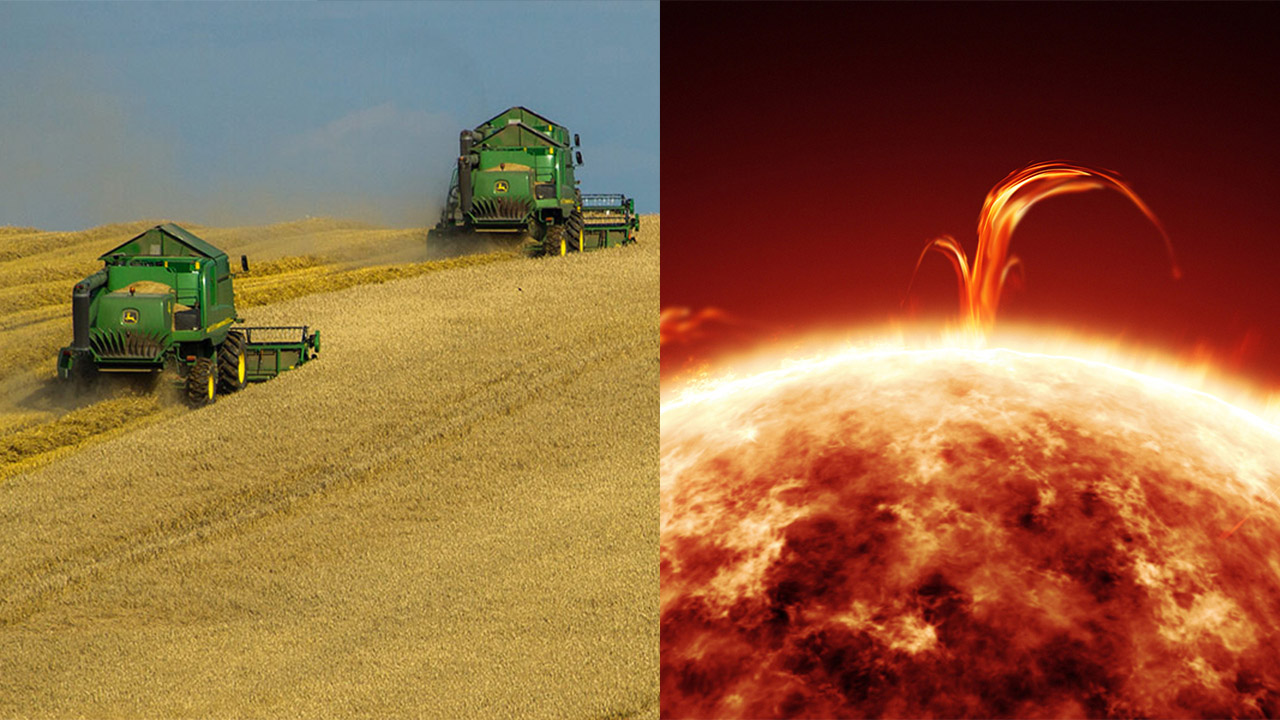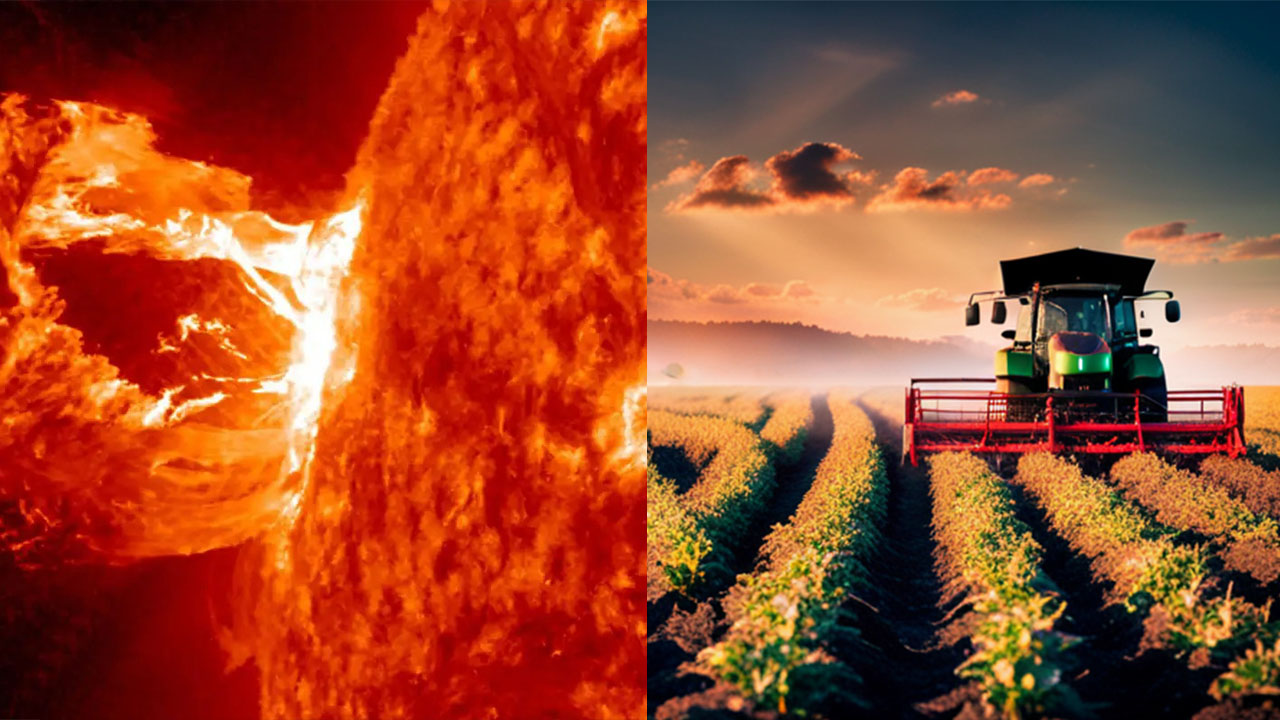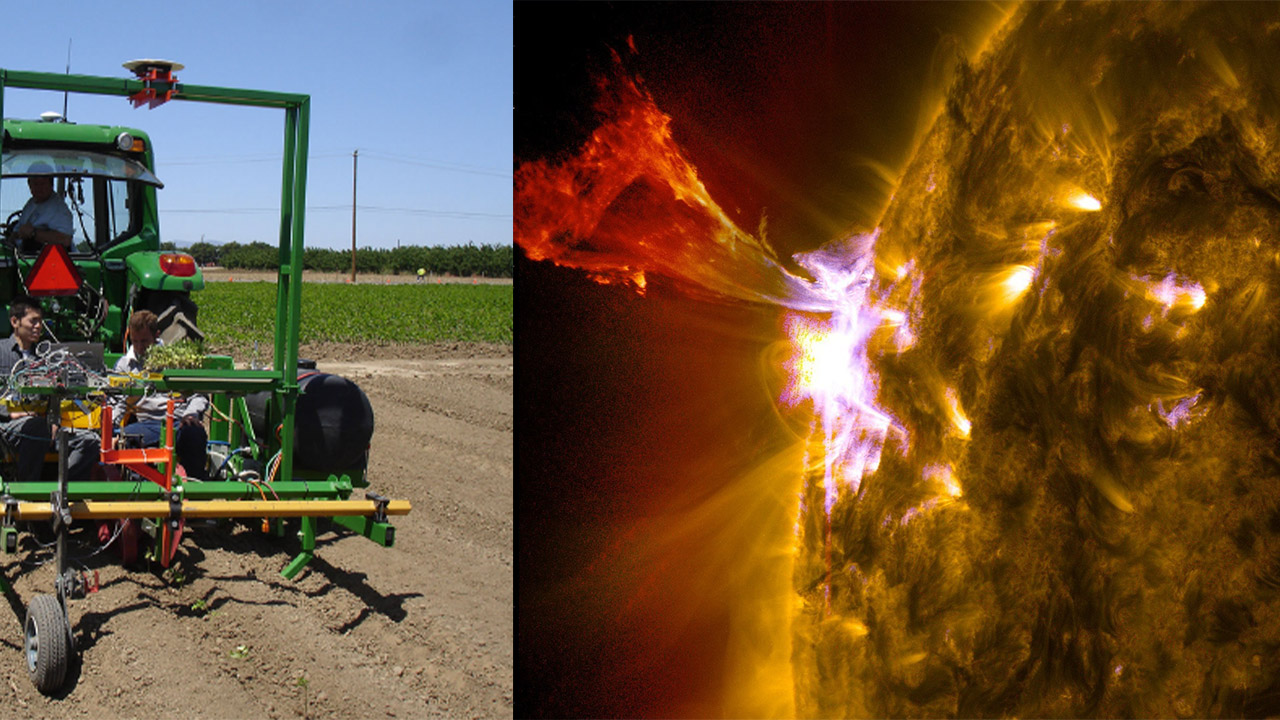Solar storms suprising spectators with the Northern Lights across the United States in the past two nights have also caused disruptions to GPS satellites, affecting operations for some Midwest farmers, as reported by 404 Media.
These disruptions have compelled many farmers to halt planting activities just as a critical deadline approaches for corn planting.
According to 404 Media, the storms temporarily knocked offline “some GPS systems,” resulting in the disruption of the accuracy of “Real-Time Kinematic” (RTK) systems.
RTK systems, utilized by tractors from John Deere and other brands, provide “centimeter-level positional accuracy” for farming tasks such as crop planting and fertilizing.
Landmark Implement, a John Deere dealer in Kansas and Nebraska, issued a warning over the weekend, describing the affected systems as “extremely compromised.”

These disruptions caused significant shifts in the field and even alterations in direction for those farmers who continued planting during the outages.
Consequently, the planted rows may not align with the anticipated positions indicated by AutoPath, a tractor guidance system, making it challenging or even impossible to utilize it effectively later on.
While the solar storms, described by the National Oceanic and Atmospheric Administration (NOAA) as some of the most severe in over two decades, are expected to diminish soon, their timing coincides critically with corn planting season.
Willie Cade of Repair.org, a right-to-repair advocacy group, emphasized the significance of May 15th as a pivotal date for corn planting. He underscored the magnitude of the situation if corn farmers are unable to plant their crops by this deadline.
Organic farmer Tom Schwarz echoed similar sentiments, highlighting how the solar storms disrupted their operations, exacerbating concerns about the weather forecast further delaying planting activities.
Farms like Schwarz’s rely on RTK systems to ensure precise crop planting near tractor lanes. Inaccuracies during planting could risk damaging crops later, as human drivers may struggle to steer tractors accurately between rows.

At a broader level, modern farming heavily depends on high-tech, often automated equipment. When such systems fail, farmers face significant challenges, as the entire crop cycle is intertwined with technology.
This reliance underscores the growing momentum behind right-to-repair laws, as farmers seek the ability to repair their equipment independently rather than being dependent on manufacturers.
Geomagnetic storms like those experienced this weekend occur due to plasma and magnetized particles ejected from the sun in coronal mass ejections.
Rated on a severity scale from G1 to G5 by NOAA, the current storm has reached G5 status. Such powerful storms can disrupt various systems on Earth, as witnessed in past instances, including power outages and satellite disruptions. NOAA warns of the possibility of severe to extreme solar storms of G4 or higher occurring again today.
While widespread disruptions have not been reported, there have been instances of degraded performance for systems like Starlink satellites, along with isolated issues with flight systems and HAM radio transmissions mentioned on Reddit.







Leave a Reply